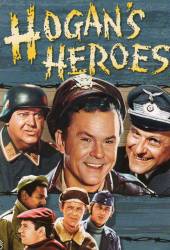Factual error: Hogan calls the radio detection truck "radar" when he orders the SS guard to switch it off. From other episodes, we know that Hogan knows what radar is, and back then, the difference between radio homing equipment and radar was even clearer to people than it is today, because radio homing was an established technology, while radar was brand new, and most people were not even aware it existed.
Factual error: Baker picks up a lot of static in his radio, then suddenly signs off and says "Sounds like the radio detection unit picked up our signal." Unlike radar, radio signal homing relies entirely on measuring the signals emitted by the transmitter that is tracked. It works by comparing the strength of the signal arriving at each component of an array of directional antennae. The process is completely passive and does not cause any alteration of the signal measurable at either receiver or transmitter at all, and certainly not any audible interference or humming.






Answer: It's a comedy, not a documentary.
stiiggy
Perhaps it was counterfeit. There are numerous episodes where they deal in counterfeit monies.